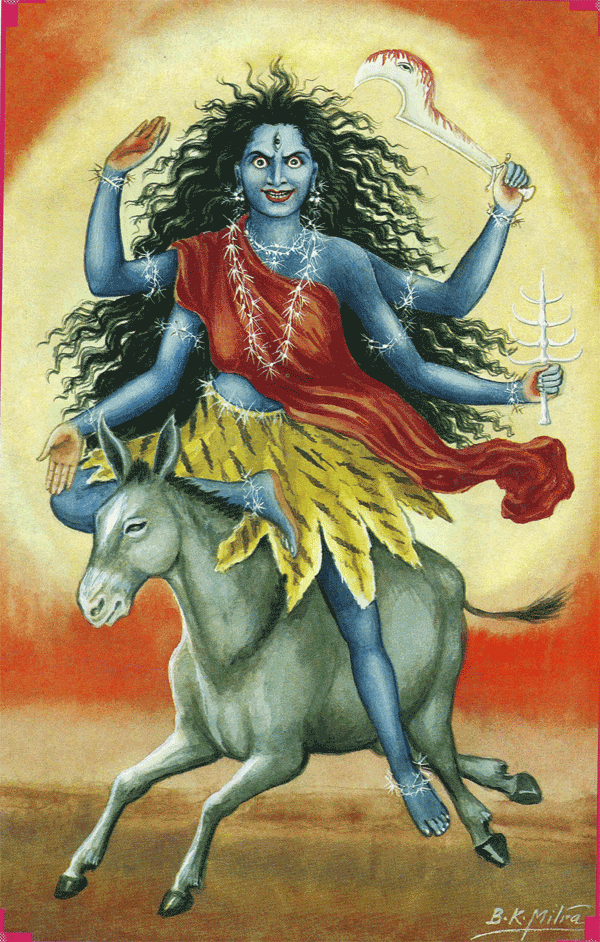Shukla sapthami, the seventh tithi (lunar phase) of the waxing Moon this month, marks the seventh day of Navaratri wherein we honor Goddess as Kalaratri, a dark and fierce form of Durga. She has wild black hair, dark complexion, three red eyes, and flaming nostrils. She rides a donkey, and carries a sword and a cleaver in two hands, while her two other hands are in mudras offering blessings and protection.
“Kala” refers to time, darkness, and therefore death. “Ratri” is night, and the presence of this goddess signifies a night of facing death and darkness. She reminds us that these are parts of the experience of life. By facing these aspects, and by worshiping Kalaratri, we can be freed from the pain and suffering associated with them. She is by our side bravely and compassionately as we face the morbid and terrifying aspects of existence, and helps to destroy our fears and weaknesses, giving us great strength.
She is an expression of Kali, whose fearful form was birthed from Durga’s third eye when Durga needed more strength and ferocity to fight the demon Raktabija. She is also called Shubhankari, she who does auspicious deeds, and reminds us that we have nothing to fear from her, and nothing to fear, ever. The compassionate energy of the Divine Mother is always working through all parts of creation, even in the processes of destruction. Kalaratri rules Saturn (Shani), who also represents time and ultimate death, and offers us the opportunity for expanded consciousness through meditation on this inevitability. By worshiping Kalaratri on the seventh day of Navaratri and meditating on her deeply, we connect with the sahasrara (crown) chakra, and the barriers between mind, body, and spirit begin to dissolve. She blesses us with happiness and courage, helping to remove sadness, pain, and fear.
In some areas, the seventh day of Navaratri begins the worship of Sarasvati. Having worshiped Durga and Lakshmi for three days and nights each, to remove obstacles and obtain spiritual wealth. Now the devotee is ready to receive knowledge, which comes from Sarasvati, the goddess of learning. In other schools of worship, such as Kalikula in Nepal, Sarasvati is celebrated for the first three nights, followed by Lakshmi, and the last three nights are dedicated to Kali.

